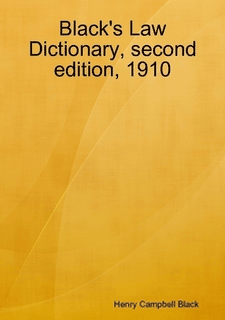Broker
Broker

An agent employed to make bargains and contracts between other persons, in matters of trade, commerce or navigation, for a compensation commonly called "brokerage." Story, Ag. § 28. Those who are engaged for others in the negotiation of contracts relative to property, with the custody of which they have no concern. Paley, Prin. & Ag. 13. The broker or intermediary is he who is employed to negotiate a matter between two parties, and who, for that reason, is considered as the mandatary of both. Civil Code La. art 3016. One whose business is to negotiate purchases or sales of stocks, exchange, bullion, coined money, bank-notes, promissory notes, or other securities, for himself or for others. Ordinarily, the term "broker" is applied to one acting for others; but the part of the definition which speaks of purchases and sales for himself is equally important as that which speaks of sales and purchases for others. Warren v. Shook, 91 U. S. 710, 23 In Ed. 421. A broker is a mere negotiator between other parties, and does not act in his own name, but in the name of those who employ him. Henderson v. State, 50 Ind. 234. Brokers are persons whose business it is to bring buyer and seller together; they need have nothing to do with negotiating the bargain. Keys v. Johnson, 68 Pa. 42. The difference between a factor or commission merchant and a broker is this: A factor may buy and sell in his own name, and he has the goods in his possession ; while a broker, as such, cannot ordinarily buy or sell in his own name, and haa no possession of the goods sold. Slack v. Tucker, 23 Wall. 321, 330, 23 L. Ed. 143. The legal distinction between a broker and a factor is that the factor is intrusted with the property the subject of the agency ; the broker is only employed to make a bargain in relation to it. Perkins v. State, 50 Ala. 154, 156. Brokers are of many kinds, the most important being enumerated and defined as follows: Exchange brokers, who negotiate foreign bills of exchange. Insurance brokers, who procure insurances for those who employ them and negotiate between the party seeking insurance and the companies or their agents. Merchandise brokers, who buy and sell goods and negotiate between buyer and seller, but without having the custody of the property. Note brokers, who negotiate the discount or sale of commercial paper. Pawnbrokers, who lend money on goods deposited with them in pledge, taking high rates of interest. Real-estate brokers, who procure the purchase or sale of land, acting as intermediary between vendor and purchaser to bring them together and arrange terms; and who negotiate loans on real-estate security, manage and lease estates, etc. Latta v. Kil-boum, 150 U. S. 524, 14 Sup. Ct. 201, 37 L. Ed. 169; Chadwick v. Collins, 26 Pa. 139; Brauckman v. Leighton, 60 Mo. App. 42. Ship-brokers, who transact business between the owners of ships and freighters or charterers, and negotiate the sale of vessels. Stock-brokers, who are employed to buy and sell for their principals all kinds of stocks, corporation bonds, debentures, shares in companies, government securities, municipal bonds, etc. Money-broker. A money-changer; a scrivener or jobber; one who lends or raises money to or for others.